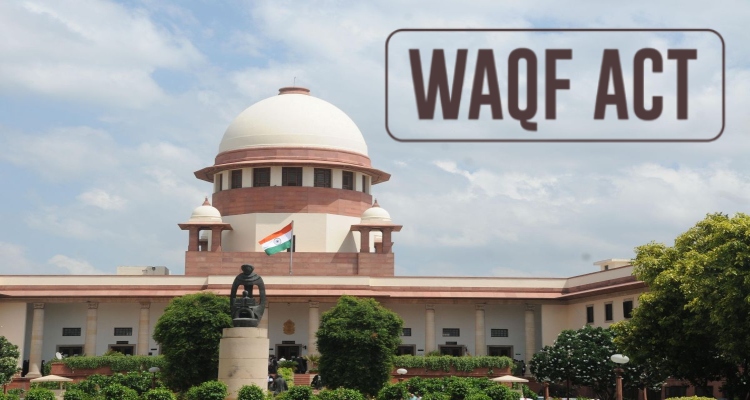
The Supreme Court of India will hear a batch of petitions on April 16 challenging the constitutional validity of the Waqf (Amendment) Act, 2025.
The matter has been listed as item no. 13 on the causelist published on the apex court’s website.
A bench comprising Chief Justice of India Sanjiv Khanna, Justice Sanjay Kumar, and Justice KV Viswanathan will preside over the hearings.
Centre Files Caveat In Court
In anticipation of legal challenges, the Central government filed a caveat before the Supreme Court, requesting that no order be passed without hearing its side. A caveat ensures that the court does not issue any adverse ruling without notifying the concerned party.
Wave Of Petitions Question Act’s Validity
Multiple petitions have been filed against the Waqf (Amendment) Act, alleging it is discriminatory towards the Muslim community and violates fundamental rights. The Act received Presidential assent from Droupadi Murmu on April 5, following intense debates in both Houses of Parliament.
Among the petitioners are:
- AIMIM MP Asaduddin Owaisi
- Congress MPs Mohammad Jawed and Imran Pratapgarhi
- AAP MLA Amanatullah Khan
- Azad Samaj Party President Chandra Shekhar Azad
- Samajwadi Party MP Zia Ur Rehman Barq
- Jamiat Ulema-i-Hind President Maulana Arshad Madani
- Kerala-based Samastha Kerala Jamiatul Ulema
- Social Democratic Party of India
- Indian Union Muslim League
- NGO Association For the Protection Of Civil Rights
Opposition
The All India Muslim Personal Law Board (AIMPLB) has also filed a petition, calling the amendment “arbitrary, discriminatory, and based on exclusion.”
RJD leaders Manoj Jha and Faiyaz Ahmad, as well as MLA Muhammad Izhar Asfi, have opposed the Act, citing concerns about excessive government control over Muslim religious endowments.
The Dravida Munnetra Kazhagam (DMK), through its MP A Raja, has also moved the Supreme Court. A Raja was a member of the Joint Parliamentary Committee on the Waqf Bill.
Key Objections
Petitioners argue that the Act unfairly targets the Muslim community. Congress MP Mohammad Jawed, also a JPC member, stated that the Act “discriminates against the Muslim community by imposing restrictions that are not present in the governance of other religious endowments.”
Asaduddin Owaisi claimed the amendments “irreversibly dilute” protections for Waqf properties, undermine established regulatory structures, and “set back Waqf management by several decades.”
Amanatullah Khan argued that the Act curtails religious and cultural autonomy, enables arbitrary executive interference, and weakens minority rights.
The Samastha Kerala Jamiatul Ulema raised concerns that the amendments would distort the religious character of Waqfs and damage the democratic processes of Waqf Board governance.
Concerns Over Digital Mandates
Maulana Arshad Madani’s plea labeled key provisions of the Act as unconstitutional, warning that mandatory digital registration could threaten historical Waqfs, especially those established without formal deeds or through oral dedication.
An NGO petitioner asserted the law is “an alarming interference into the religious affairs of the Muslim community,” undermining the core purpose of Waqf, a practice with deep Quranic roots.
Read More: Supreme Court, Delhi High Court, States High Court, International




